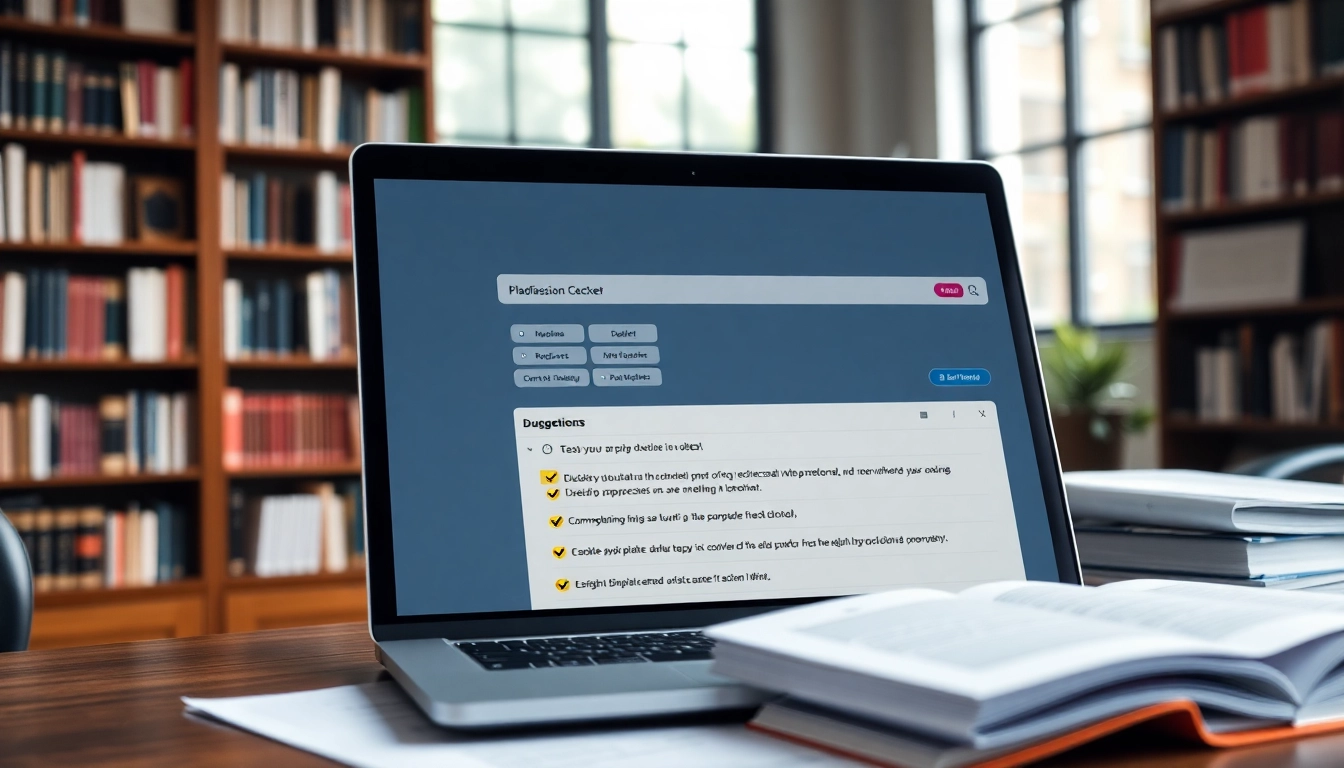Understanding the Level 5 Diploma in Leadership and Management for Residential Childcare
Overview of the Qualification
The Level 5 Diploma in Leadership and Management for Residential Childcare is a key qualification designed for individuals looking to work in managerial roles within residential childcare settings. This qualification equips students with the necessary skills and knowledge to manage residential care for children and young people, ensuring that practitioners are confident and competent in their roles. The curriculum emphasizes effective leadership and enhances essential management capabilities, enabling graduates to provide high-quality care that meets the diverse needs of children.
For those seeking level 5 diploma in leadership and management for residential childcare answers, this qualification serves as an excellent foundation.
Core Learning Objectives
This diploma focuses on several core learning objectives, aiming to develop students’ leadership, management, and interpersonal skills. Key objectives include:
- Understanding the importance of safeguarding and child protection in residential care.
- Learning how to lead and motivate teams effectively within a childcare setting.
- Gaining insight into the legislation and regulations governing childcare services.
- Developing strategic management skills to improve service delivery and outcomes for children.
- Implementing policies and practices that ensure a supportive and conducive environment for children.
Importance in Career Advancement
Achieving a Level 5 Diploma in Leadership and Management for Residential Childcare can significantly enhance career prospects for practitioners in the field. This qualification provides a pathway to senior roles, such as residential manager or deputy manager, allowing individuals to take on more responsibilities and lead teams of care professionals. Importantly, employers often prioritize qualifications like this one when considering candidates for leadership positions, making it a valuable asset in the highly competitive childcare sector.
Key Units and Content Breakdown
Mandatory Units Explained
The qualification consists of various units, of which several are mandatory. These units cover crucial aspects needed to ensure effective leadership and management in residential childcare settings. Key mandatory units include:
- Unit 501: Principles of Safeguarding and Protection in Health and Social Care – This unit outlines the key concepts of safeguarding and child protection, helping students understand their responsibilities in maintaining a safe environment.
- Unit 502: Lead and Manage a Team Within a Residential Childcare Setting – Focusing on the dynamics of team leadership, this unit covers the strategies for motivating staff and managing performance.
- Unit 503: Understand and Lead Practice to Support the Safeguarding and Protection of Children and Young People – This unit emphasizes the practice and management aspects of safeguarding children effectively.
- Unit 504: Develop and Implement Policies and Procedures to Promote Safety and Wellbeing in Residential Childcare – Students learn how to create and implement essential policies that protect children and foster their development.
Optional Units and Their Relevance
In addition to mandatory units, students have the opportunity to choose from optional units that allow for specialization in areas of particular interest or relevance to their professional context. Examples of optional units include:
- Unit 505: Understand Child Development and Supporting Children – This unit enriches knowledge about child development stages and how best to support children accordingly.
- Unit 506: Working with Others in Residential Childcare – This unit covers collaboration between various professionals involved in childcare, ensuring integrated care approaches.
- Unit 507: Understand and Support Individuals with Specific Needs – Focused on inclusivity, this unit prepares students to cater to children with diverse needs and backgrounds.
Assessment Methods for Each Unit
Assessment for the Level 5 Diploma in Leadership and Management for Residential Childcare typically involves a combination of coursework, practical assessments, and reflective evaluations. Students may be required to submit written assignments analyzing their understanding and application of the material covered. Additionally, practical demonstrations of skills in a real-world childcare setting may also form part of the assessment criteria.
Resources for Success: Tools and Study Materials
Recommended Books and Articles
To excel in the Level 5 Diploma, students should utilize a range of resources. Recommended readings include:
- “Management Skills in Child Care” by Christine J. K. Booth – Focuses on practical skills essential for management roles in childcare.
- “Child Protection in Residential Care” by Alison McMillan – Provides insights into best practices for safeguarding and child protection policies.
- “Leading Child Care Solutions” by Susan Jones – Covers leadership theories and their application within the childcare sector.
Online Courses and Workshops
Many online platforms offer courses and workshops that complement the Level 5 Diploma. Websites like Udemy and Coursera provide numerous options for professional development in areas like leadership, child psychology, and policy implementation.
Study Groups and Peer Support
Forming or joining study groups can bolster understanding of complex topics. Peer support not only facilitates the sharing of resources and past experiences but also creates opportunities for collaborative learning. Utilizing platforms like Facebook and Reddit can connect students with one another, enabling discussion and group study sessions.
Common Challenges and Solutions
Navigating Coursework and Assignments
Students may encounter challenges related to heavy coursework and tight deadlines. Establishing a clear schedule and breaking tasks into manageable segments can alleviate stress. Time-blocking methods help in dedicating specific hours to particular assignments, ensuring steady progress towards completion.
Dealing with Time Management Issues
Effective time management is quintessential for balancing studies and work responsibilities. Students should consider employing digital tools and applications such as Todoist or Trello, which assist in organizing tasks and deadlines. Prioritizing tasks based on urgency and importance can further enhance efficiency.
Seeking Guidance from Mentors
Mentorship is a powerful resource in overcoming challenges encountered during the diploma. Establishing relationships with experienced professionals can provide guidance, support, and insights that are valuable for academic achievement and career advancement. Mentors can also offer practical advice based on their own experiences within the field.
Final Thoughts: Building a Leadership Mindset in Childcare
Emphasizing Lifelong Learning
Building a successful career in residential childcare requires a commitment to lifelong learning. The rapidly evolving landscape of care requires professionals to stay updated on current legislation, best practices, and emerging theories regarding child development. Adopting a mindset that embraces continuous education will enable individuals to manage effectively and adapt to new challenges.
Networking Opportunities in Childcare
Networking with other professionals is crucial for sharing knowledge and fostering collaborations. Participating in industry conferences, joining professional organizations, and engaging with colleagues through social media platforms can open doors and provide insights into the latest trends and opportunities in the sector.
Setting Career Goals Post-Diploma
As graduates of the Level 5 Diploma embark on their careers, it is essential to set ambitious yet achievable career goals. Whether aspiring to a managerial position within residential childcare or aiming to influence policy at a broader level, clear goals can provide direction and motivation. Regularly reassessing these goals will ensure continued growth and development within the field.



